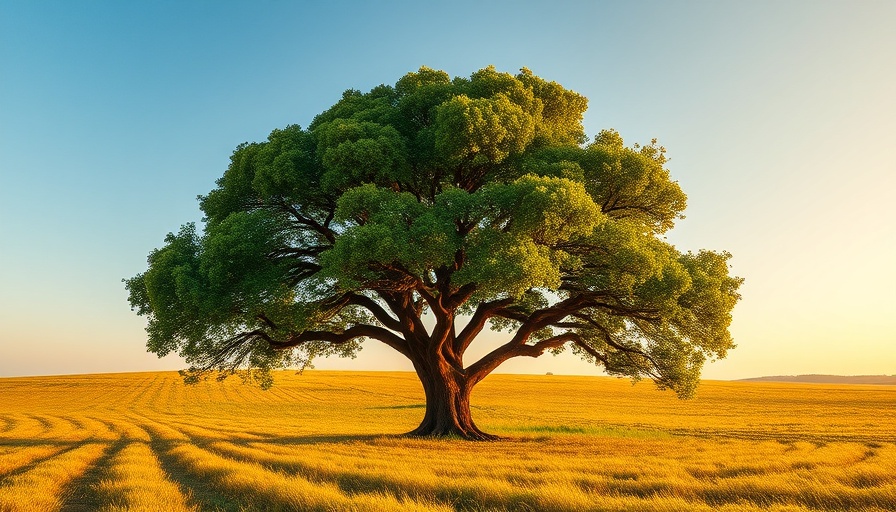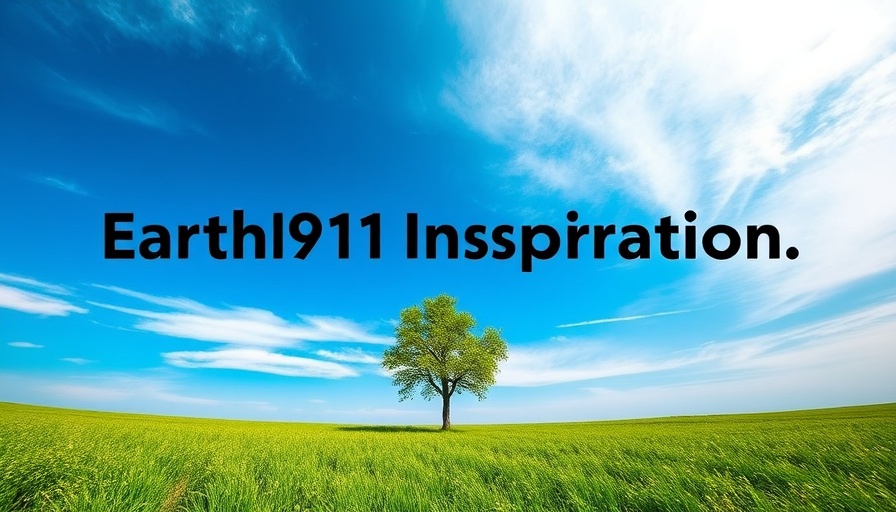
Embracing Nature: A Call for Stewards
In a world facing unprecedented environmental challenges, the words of activist and author Edward Abbey resonate more than ever: "The idea of wilderness needs no defense, it only needs defenders." As we confront climate change, biodiversity loss, and habitat destruction, the role of defenders—individuals and organizations dedicated to preserving our natural world becomes increasingly crucial. This commitment is essential for sustaining not only the environment but the well-being of future generations.
Historical Context: The Birth of Wilderness Protection
The Wilderness Act of 1964 marked a pivotal moment in the conservation movement, establishing a framework for protecting wild lands across the United States. Under this law, iconic areas like Yosemite and the New River Gorge were designated as wilderness, safeguarded from commercial exploitation. Over the decades, the act has undergone scrutiny, but its foundational importance in preserving biodiversity cannot be overstated. It has safeguarded diverse ecosystems, ensuring that nature remains untouched by mechanized and commercial forces.
Understanding the Contemporary Landscape
Today, the conversation around wilderness and environmental defense is more dynamic and contested than ever. Some argue that the protections of the Wilderness Act impose limitations on research and exploration. However, this perspective overlooks the fundamental purpose of these protections: to maintain wilderness areas as untrammeled landscapes where ecological and evolutionary processes can unfold without human interference. As various interest groups vie for access to these pristine territories, the need for steadfast defenders continues to grow.
Counterarguments: Balancing Conservation and Exploration
In light of the changing conservation landscape, some assert that research should take precedence, even if it means altering wilderness character. Yet, the Wilderness Act was intentionally designed to maintain the integrity of these spaces. Allowing exceptions to accommodate individual research projects could set a dangerous precedent, opening the floodgates for further encroachments. A more balanced approach recognizes the value of scientific understanding while adhering to the principles of the Wilderness Act.
Diverse Perspectives: The Community’s Role in Preservation
As climate concerns escalate, more communities are recognizing their role in preserving environments. Grassroots organizations across the nation work tirelessly to defend local ecosystems against threats such as urban development and climate-induced changes. Teams like Wilderness Watch advocate for the continued application and enforcement of the Wilderness Act, showcasing the power of community-led initiatives in environmental protection.
The Emotional Connection: Why This Matters
Humans are inherently connected to nature; its beauty invokes a sense of peace and grounding. As natural habitats decline, we risk losing not only biodiversity but also our emotional and spiritual connections to landscapes. Studies have shown that spending time in nature benefits mental health, reduces stress, and fosters a sense of connection. Thus, defending these spaces is not merely an ecological endeavor but a deeply human one.
Action Steps: How You Can Contribute
Each of us has the power to serve as a defender of nature, whether it’s through advocacy, education, or simple day-to-day choices. Here are a few actionable steps you can take:
- Educate Yourself: Stay informed about local and national environmental issues and legislation.
- Get Involved: Join local conservation groups or volunteer for reforestation projects.
- Support Sustainable Practices: Choose products and services that prioritize environmental sustainability.
- Advocate for Policy Changes: Engage with policymakers to protect wilderness areas and push for stricter environmental regulations.
Conclusion: Answering the Call
As we celebrate the achievements of the Wilderness Act and reflect on its contribution to environmental protection, we must also recognize the ongoing responsibility to advocate for the natural world. The idea of wilderness truly needs defenders—us. Each step we take towards conservation strengthens the fabric of our planet's health and ensures that future generations inherit a rich, diverse, and enduring natural heritage.
 Add Row
Add Row  Add
Add 




Write A Comment